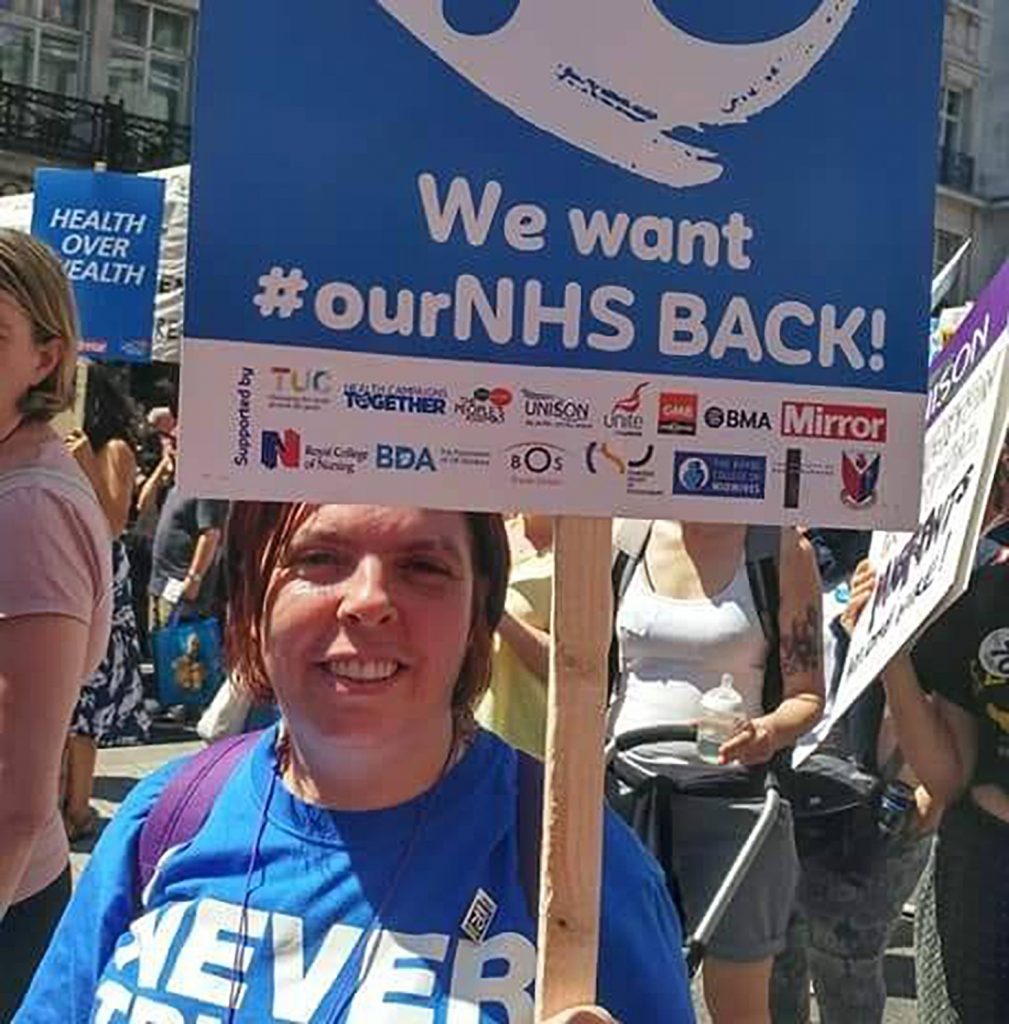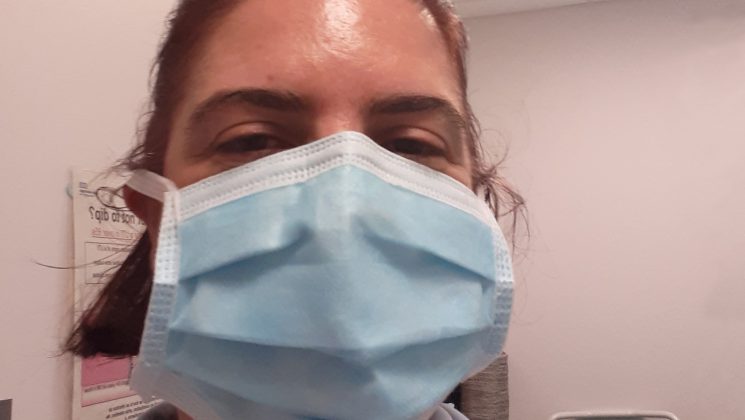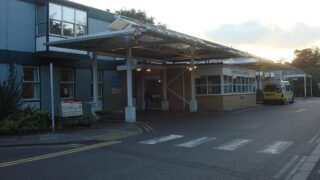The clapping may have died away, but our NHS heroes are still going into work day and night to keep the health service running.
One of them is Sam Hemraj, a healthcare assistant on a busy trauma orthopaedic ward in Peterborough who talked to UNISON Eastern about working through the crisis.
She’s felt the impact of Covid-19 directly. She’s contracted the virus a few weeks ago but is thankfully on the mend. “I’m on the road to recovery but still suffering from Covid fatigue, which is not really talked about,” she says.
The pandemic has naturally turned the hospital upside down, with workers maintaining as much social distancing as possible. It makes work harder, with patient handovers a challenge given the two-metre rule, but it also has an impact on the social side of hospital life, so vital in providing support and solidarity to colleagues in such a stressful environment.
“It’s difficult having conversations as a group – going for breaks sitting two metres apart means four of you can’t sit together,” she says. “When colleagues have left the trust they have not been able to have a proper send off or leaving party socially out of the workplace.”
On top of that there’s the ever-present threat of the virus: “Morale has dropped at times as everyone wonders ‘am I going to be the next person to get Covid.’
“But all the community support has helped keep morale up for the most part — we’ve received Easter eggs, flowers, cakes, hot meals, the list goes on.
“We’re also supported by the trust, with access to a 24-hour phone line for emotional support and personal appointments with a counsellor if we need.
“Most importantly, we’ve got each other: staff support each other through the bad the and the good times.”
She points out that it’s “impossible” to maintain social distancing with patients, especially as a healthcare assistant providing personal care – helping patients wash, use the toilet or even getting in or out of bed.
Fortunately she’s had enough personal protective equipment (PPE) that she feels safe, even when she’s occasionally been sent to Covid wards to help out.
“At times there have been issues that they may not been enough PPE especially over the Easter period. Fortunately we had the PPE that was needed.
“It has been stressful in the workplace making sure there is enough PPE. It doesn’t help when Public Health England changes the guidelines regarding PPE.”
But Sam says the PPE issues have “settled down.”
Social distancing rules have also hit patents and their families.
“The trust has stopped visiting unless end of life. This has been upsetting for patients and makes them lonely but they understand the reasons.
“We’ve been keeping the lines of communication open as much as possible though, letting patients talk on the phone or helping family members exchange pictures and messages.
“It can be distressing for dementia patients who don’t quite understand why people haven’t visited. We sometimes find that dementia patients are more settled when someone they know is with them.
“You do get your odd visitor that is not happy they cannot visit but most of the public has been very supportive.”

Alongside her main role on the wards, Sam is branch secretary for North West Anglia Hospitals and staff side chair.
“This work has changed a lot,” she explains. “We’re dealing with more staff issues but the normal day-to-day issues like sickness absences and disciplinaries have reduced so the trust can concentrate on Covid. No doubt they’ll start to come back as we get closer to returning to ‘normal.’
“Instead we’re dealing with a lot of queries about PPE, isolating and all the temporary terms and conditions brought in during the pandemic.” Luckily she and her fellow reps have been able to deal with many the issues that have come up.
Turning to the future, we wonder what will happen as quarantine eases and the NHS returns to ‘normal’ specifically the rumours (swiftly, if unconvincingly, denied by the government) that the public sector is in line for a two-year pay freeze.
“My thoughts would not be appropriate to say – it’s appalling just as MPs get such a decent pay rise.
“They’re basically saying: ‘We are happy that you are saving lives, even the prime minister’s life, but we cant give you a pay rise.’
“This would be an absolute disgrace to NHS workers if this happened. We’ve all been working incredibly hard through the pandemic and will have more work to do getting through the backlogs of cancelled appointments and elective surgery as the lockdown eases.”
And she’s keen to point out that it’s not just the directly employed staff that have been giving their all throughout the crisis.
“This could be a real opportunity to ensure outsourced workers on portering, cleaning, catering and elsewhere get a proper pay rise and NHS rates.
“So often these workers have been forgotten — coverage of the pandemic has been all about doctors and nurses — but we’re all cogs in a wheel linking to each other. Not just in hospitals but our community care team as well.
“We are all One Team and we all deserve recognition.”


